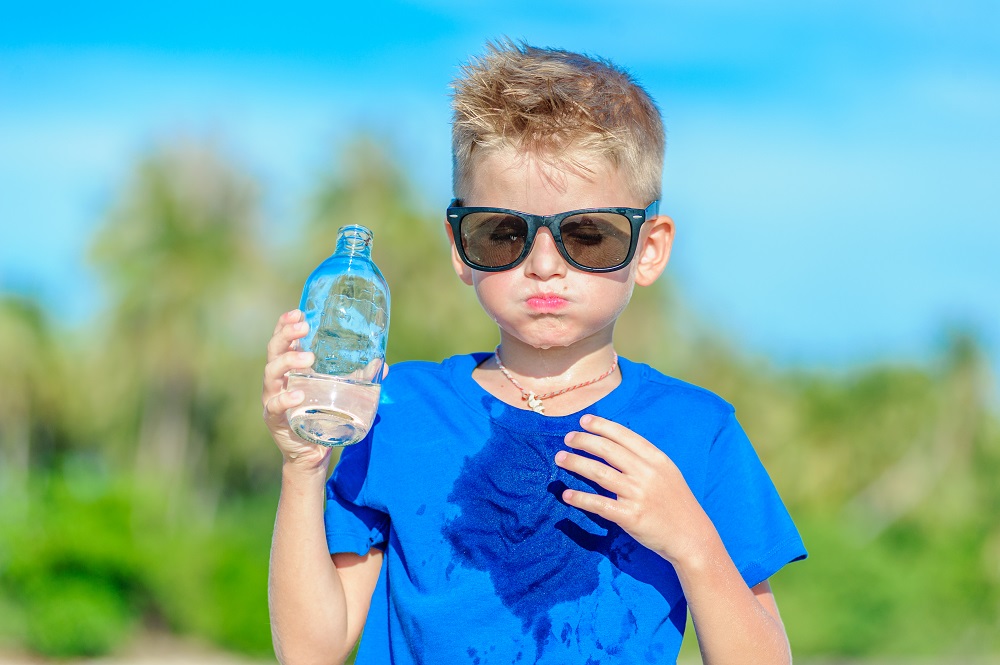How Much Water You Should Drink In A Day?
Though it seems to be a simple question, it has no simple answer. On more specific terms, the body of an adult human being has 60% water, despite consuming or flushing. And each body loses its water, mainly through sweat and urine. The health authorities generally recommend drinking eight 8-ounce glasses, which makes about 2 liters of water every day. Yet there are other advisors who suggest consuming water deliberately throughout the day, even when you don’t feel thirsty.
Studies have shown varied results as consumption of water is subjective to a particular individual’s health, level of activity, and the climatic conditions of the place where he or she lives. However, it’s certain that there is no sure-shot formula to fit everyone. Like most of the other things, water requirement for each person might be different considering both internal and external factors. Let’s ascertain some factors of water intake and how do they affect the functioning of the body and brain, before reaching on to the answer of ideal daily water consumption for humans.
Factors Influencing Water Requirements
Physical Activities – People, who engage in any activity which makes them sweat, need to drink extra water to make up for the fluid loss. It is vital to drink water before, during and after a workout.
Climatic Conditions – People, who live in areas dominated by hot and humid weather, are more likely to sweat, and thus, need more water.
General Well-Being – People, who are going through a phase of fever, vomiting or diarrhea, also require additional water as the fluid gets lost from the body. Besides water, you may also need oral rehydration solutions to cover the fluid loss in such situations.
Pregnancy or Breast-Feeding – Pregnant or breast-feeding women do require extra water to stay hydrated. The general recommendation of water intake for a pregnant woman is 2.4 liters, and for a breast-feeding woman is 3.1 liters per day.
Do Other Sources Count Toward Your Total Water Intake?
People often forget this part, that they consume a significant amount of water though food as well. For example, fruits like watermelon and orange have almost 95% of water, and the same rule applies to vegetables like spinach and ridge gourd as well. In fact, be it meat or eggs, every food has its share of water content. Apart from food, beverages like milk, tea, juice or even carbonated drinks contribute to the daily water consumption of a person. However, water is certainly your best friend as it’s calorie-free and readily available.
How to Understand That Your Water Intake is Sufficient?
People can easily make out if their water consumption is adequate, when they hardly feel thirsty, or their urine is colorless or light yellow. Still, to be on a safer side, or to prevent dehydration, it’s better to
- Have a glass of water or other calorie-free beverage with each meal.
- Have water before, during and after a workout, or any intense physical activity to compensate for the fluid loss.
- Have water when you’re feeling hungry because thirst is often confused with hunger.
What Happens If You Drink Excess Water?
Like the saying goes, “Excess of everything is bad.” It is important to understand that though water is certainly the best drink, drinking excess of water can also be dangerous. In rare cases, it’s feasible to drink too much water which in turn, may result into water intoxication. Water intoxication, also called hyperhydration or water toxemia, is a deadly disturbance in brain functions which happens when the normal balance of electrolytes in the body is pushed beyond safe limits by excess water consumption. Athletes, who indulge in long or intense workouts or events, are potentially at a higher risk of water intoxication.
Summing Up the Water Intake
Maintaining the water balance of 60% is essential for our survival. That’s why, nature has provided us with intricate mechanisms for regulating when and how much we drink. As soon as our water level goes below a certain point, thirst occurs. For most of the people, there is no need to intentionally think about water intake as the thirst mechanism in the brain is very efficient. Yet, there can be certain circumstances which call for more water intake.

